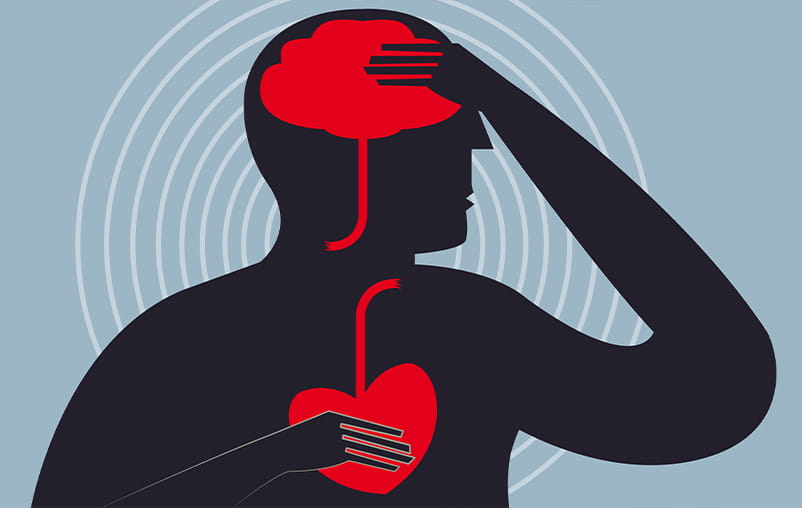If you’re tuned into the world of food and nutrition, you may have heard of intermittent fasting. Intermittent fasting is a pattern of time-restricted eating that many people have turned to as a way of managing their weight or health.
Christians, Buddhists, Muslims and Jews have fasted for religious reasons for ages. But now that fasting is in the mainstream for non-spiritual purposes, it’s important to get the facts before you embark on this diet.
What Is Intermittent Fasting?
Intermittent fasting defines windows of time in which you eat your meals. Outside of those windows of time, you refrain from eating and drinking (besides water, teas or non-caloric beverages). This can deplete your body’s immediate energy stores in the form of glucose.
After a significant amount of time, your body runs out of glucose to burn for energy and switches to stored fat. Fasting also has the potential improve your body’s ability to switch between fuel sources and work more efficiently, which can help lose weight and gain muscle.
There are several different methods of intermittent fasting, but one of the most popular is to restrict eating to 8 hours and fasting for the rest of the day. This is known as the 16/8 method.
Other methods include:
- Eat-stop-eat, wherein you fast for a full 24 hours once or twice a week and eat normally on the other days
- 5:2 method, wherein you consume 500-600 calories two days a week and eat normally on the other days
- Alternate day fasting, wherein you fast every other day
Benefits of Intermittent Fasting
Research on intermittent fasting is still growing, but data suggest that appropriately-guided fasting along with weight control may play a role in the prevention of chronic diseases including:
- Diabetes
- Cardiovascular disease
- Neurodegenerative disorders
- Inflammatory bowel disease (IBS)
- Various cancers
Intermittent fasting is also an effective weight loss method because it helps you consume fewer calories in a day. Most studies indicate intermittent fasting is at least comparable to traditional calorie restriction. Some analyses indicate intermittent fasting could be more beneficial for cardiovascular risk factors like cholesterol, blood lipids and fasting blood glucose, as well as weight loss.
Drawbacks of Intermittent Fasting
While there are many benefits of fasting, you may experience some difficulties in the first few days. Some people go to bed feeling hungry and some experience mood changes.
“There have been reports of irritability, what you might call getting ‘hangry,’ and some reports of GI issues like constipation after fasting,” said Austin Lobitz, Clinical Dietitian for Pediatric Nephrology Dialysis and Transplant at University Health.
Other side effects of intermittent fasting may include:
- Anxiety
- Irritability
- Decreased energy levels
- Headaches
- Body temperature changes
- Low blood sugar levels
Lobitz said some people also get cravings and over-eat after fasting to compensate for missed meals.
Is Intermittent Fasting Safe?
You should consult with your primary care provider before fasting. Depending on your medical history, fasting may or may not be the best approach to nutrition. It’s important to remember that intermittent fasting is just one of many strategies people can use to manage their weight and health. Fasting is also not magical; a balanced diet, regular exercise, stress-reduction, and quality sleep are still the foundations of health, with or without fasting.
“There are pros and cons,” Lobitz said. “It depends on each individual’s medical history, their approach to health and wellness, and their dieting strategy to determine if fasting is a good fit or not.”
There are also certain segments of the population that should not try intermittent fasting because it could be more harmful than beneficial. People who should be cautious about fasting include:
- People with a history of eating disorders
- Some subgroups of women, including those who are pregnant, breastfeeding or planning on becoming pregnant soon
- Very active or athletic people
- People with metabolic conditions
- People with diabetes who are dependent on insulin
You should stop fasting and ask your provider about alternative dieting methods if you experience any of the following severe side effects:
- Headache
- Fatigue
- Gastrointestinal or digestive problems
- Very low blood sugar levels
Talk with a University Health Dietitian
If you’re curious about intermittent fasting, ask your primary care provider or a licensed dietitian first. Schedule a visit with a University Health primary care provider by calling 210-358-8255 or book an appointment online.





